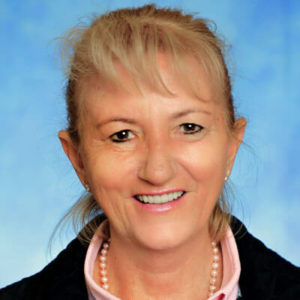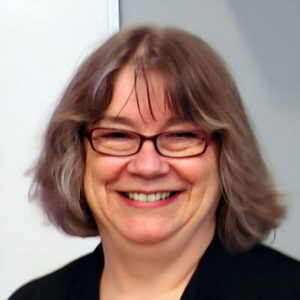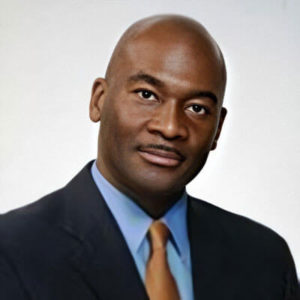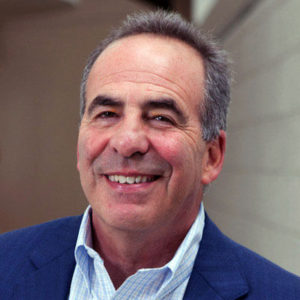Faculty
Eleanor Drago-Severson

Ellie Drago-Severson is Professor of Education Leadership and Adult Learning & Leadership at Teachers College, Columbia University. A developmental psychologist, Ellie teaches, conducts research, and consults to schools and districts, school and district leaders, teacher leaders, coaches. and organizations on:
- professional and personal growth and learning;
- leadership that supports principal, teacher, school, and leadership development; and
- coaching and mentoring in K–12 schools, university settings, and other educational contexts domestically and internationally.
She is also an internationally certified Immunity to Change and leadership coach who works with coaches, superintendents, principals, assistant principals, teacher leaders, and other leaders to build internal capacity and achieve goals. Her work is inspired by the idea that schools must be places where adults and children can grow, and she is dedicated to creating the conditions to achieve this and to helping leaders and educators of all kinds to do the same on behalf of supporting adults and youth.
At Teachers College, Ellie is the Director of the PhD Program in Education Leadership. She also works extensively with aspiring and practicing scholars, principals, superintendents, and coaches across departments and programs—including TC’s Summer Principals Academy, the Urban Educators Leaders doctoral Program for aspiring district leaders, the Cahn Fellows Program for Distinguished Leaders, and the Leadership Institutes for School Change—a series of professional learning experiences she directs and co-facilitates.
Ellie is also the author of the best-selling books Helping Teachers Learn (Corwin, 2004) and Leading Adult Learning (Corwin/The National Staff Development Council, 2009)—as well as Becoming Adult Learners (Teachers College Press, 2004) and Helping Educators Grow (Harvard Education Press, 2012). She is a co-author of Learning for Leadership (Corwin, 2013), Learning Designs (Corwin, 2014) and the bestseller, Tell Me So I Can Hear You (Harvard Education Press, 2016). Her latest book, Leading Change Together (co-authored with Jessica Blum-DeStefano), was released in January 2018 (ASCD). Currently, she and co-authors Pat Maslin-Ostrowski and Jessica Blum-DeStefano are writing Leaders’ Internal Experiences with Challenge and Change (Corwin, forthcoming), which is based on their longitudinal, mixed-methods research with leaders domestically and internationally. In addition — along with co-authors Jessica Blum-DeStefano and Deb Brooks-Lawrence — Ellie is examining how leaders’ internal capacities influence the ways they lead on behalf of social justice and equity. This research — The self in social justice. The promise of a developmental lens on race, identity, and transformation (Corwin/Sage, forthcoming) — aims to articulate a developmental continuum that can help leaders and those who prepare them grow the growers of a more equitable future.
As a teacher and scholar, Ellie’s work has been recognized by and supported with awards from the Spencer Foundation, the Klingenstein Foundation, and Harvard Graduate School of Education, where she served as a faculty member for eight years. While serving at Harvard, Ellie was awarded the Morningstar Award for Excellence in Teaching and the Dean’s Award for Excellence in Teaching. Most recently, Ellie received three outstanding teaching awards from Teachers College. She has earned degrees from Long Island University (BA) and Harvard University (EdM, EdD and Post-Doctoral Fellowship). She grew up in the Bronx, New York.
Visit Ellie’s Website for more information.

Eleanor Drago-Severson
Professor of Education, Teachers College, Columbia University
Carolyn Riehl

Dr. Carolyn Riehl’s research reflects a broad concern for how schools can be organized and administered so that they are lively, humane, equitable, and productive settings for learning and accomplishment for both teachers and students, especially students who traditionally have been poorly served by schooling.
She situates her scholarship at the juncture between the sociology of education and organizational and administrative studies, the fields in which she pursued graduate training. The sociological perspective addresses the dynamic interrelationships among individuals, social groups, organizations and institutions, and wider sociocultural contexts, with particular regard to issues of equity. The administrative/organizational perspective covers technical, interpretive, and critical approaches to the design and administration of school programs and structures and the intricacies of culture and meaning in schooling. These fields are complementary in their attention to educational practice and to the cultural and institutional foundations of that practice. They converge in questions about how to organize and administer schools. Yet their concerns, while overlapping, are not identical.
Sociological approaches to schooling explore the role of schools within society and their effects on individuals and groups, but almost never frame administration as an important aspect of the social order of the school. Administrative approaches focus on leadership and administrative practice, organizational dynamics, and the process of change, but rarely look at school organization and administration through wider interpretive perspectives on human action or social structure.
Her work tries to build bridges across these disciplines and to generate unifying approaches to the problems of knowledge and practice that they raise. Dr. Riehl’s scholarship reflects different epistemological traditions, ranging from “soft positivism” to interpretive and critical studies; she finds something of value in each tradition. She utilizes both qualitative and quantitative methods in her empirical work. Her research has clustered around three general themes: studies of school organization; studies of the practice of school administration and leadership; and scholarship on research. An additional theme focusing on issues of diversity and equity stretches across all three clusters. She can be reached via email at riehl@exchange.tc.columbia.edu, or by telephone at 212-678-3728.

Dr. Carolyn Riehl
Associate Professor, Sociology & Education Policy, Teachers College, Columbia University
Dr. Brian K. Perkins

Dr. Brian K. Perkins is the Director of the Urban Education Leadership Program at Columbia University Teachers College Department of Organization and Leadership. In the past two years, Dr. Perkins has reorganized the UELP under a dynamic new conceptual framework. He also directs the Superintendent’s Work Conference (started in 1941) at Teachers College. He is the former Chair and Professor of Education Law and Policy at Southern Connecticut State University in New Haven, Connecticut. As Chair, Dr. Perkins successfully led his department through the licensure of the university’s first doctoral program and full NCATE accreditation.
Dr. Perkins is a distinguished Yale alumnus and was named a Timothy Dwight Fellow in 2004. He was a member of the research faculty at the Yale University School of Medicine. He has served as a consultant to school districts throughout the U.S., Brazil, the People’s Republic of China and the Republic of South Africa. Dr. Perkins is a visiting professor at the University of Pretoria in South Africa. Dr. Perkins is the host of his own Internet radio show, The Perkins Platform, which is a monthly forum on education leadership topics with thousands of listeners.
Dr. Perkins was the President of the New Haven (CT) Board of Education where he served for 11 years. He also served for four years on the Board of Directors of the National School Boards Association. Dr. Perkins served two terms as national chair for CUBE: Council of Urban Boards of Education and was the chair for the National Black Caucus of School Board Members. Dr. Perkins was also the national chair of the Leadership for Healthy Communities initiative of the Robert Wood Johnson Foundation.
Dr. Perkins is the author of several published articles and book chapters and serves as the Principal Investigator and Author of Where We Learn (2006), Where We Teach (2007) and What We Think (2008) – the largest studies on urban school climate in the history of public education. Dr. Perkins is leading a ground-breaking study and improvement initiative of school climate in Rio de Janeiro, Brazil. His forthcoming manuscript, Improving School Climate from the Inside Out, is under review and is scheduled for release next year.
Dr. Perkins travels extensively in sub-Saharan Africa and leads annual delegations of educators to the region. He is leading an effort to provide clothing and funding to the Tholakele Orphanage in the Republic of South Africa where he currently serves as an advisor. He is a life member of Alpha Phi Alpha Fraternity, Incorporated and a member of the Sigma Pi Phi Boulé. Dr. Perkins received his Bachelor of Science Degree in Chemistry from Grambling State University, a Master’s Degree in Public Health from the Yale University School of Medicine and his Doctor of Education Degree from Columbia University Teachers College. He has a graduate certificate in executive coaching from the Columbia Business School. Dr. Perkins is a registered provider of continuing education for school board members by the Texas Education Agency (TEA) and a nationally certified principal mentor by the National Association of Elementary School Principals.

Dr. Brian K. Perkins
Associate Professor of Practice in Education Leadership, Teachers College, Columbia University
Jeffrey Young

Jeffrey M. Young is a Professor of Practice in Education Leadership at Teachers College, Columbia University. Before joining the faculty at TC, Dr. Young served as Superintendent of Schools in Cambridge, MA from 2009 through 2016, following terms as Superintendent in Newton, Lexington and Lynnfield, MA.
He began his career in education as an English teacher, Department Chair, and Curriculum Coordinator in Brookline, MA. Dr. Young was a member of the Adjunct Faculty at the Boston University School of Education and has delivered talks at various institutions of higher learning as well as at the International Education Conference in Beijing, China.
Among his distinctions, he has been recognized by the Massachusetts Association of School Superintendents with the President’s Award; Brandeis University with the Levitan Award for Leadership; and the Cambridge NAACP with the Martin Luther King, Jr. Award for his work “to provide an effective, innovative education to ALL of Cambridge’s children regardless of race or class.”
Dr. Young received a B.A. in English and American Literature from Brandeis University, a Masters Degree in Education from Tufts University, and a Doctorate in Education from the Harvard Graduate School of Education.
As a new member of the TC faculty, Dr. Young is struggling with his identity as a fan of the Boston Red Sox.

